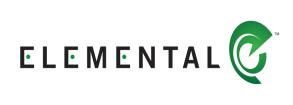Elemental Claims to Double Up Encoding Power
The smarter way to stay on top of the multichannel video marketplace. Sign up below.
You are now subscribed
Your newsletter sign-up was successful

Elemental Technologies last month released the second major version of its video-processing software, which among other improvements provides twice the processing performance when running on next-generation processor architectures from Nvidia and Intel, the company said.
The 2.0 version of the software provides unified support for multiple codecs, delivery standards and content protection technologies. The release also supports Nvidia’s Tesla graphic processing unit (GPU) accelerator and Intel’s Sandy Bridge-based central processing unit (CPU) for both the Elemental Live and Elemental Server products.
According to Elemental, the 2.0 software release is currently deployed with its 100-plus customers. Those include Comcast, ESPN, HBO, ABC News, Big Ten Network, CBS Interactive, National Geographic and PBS.
Separately, several dozen customers have moved to the next-gen Nvidia and Intel hardware platforms, including Comcast, according to Elemental vice president of marketing Keith Wymbs. The performance gains with the new processors mean customers can cut their rack space in half, he said.
Comcast is using the Elemental encoding platform to process traditional video-on-demand assets, focusing on gaining efficiencies with HD VOD, according to Dave Higgins, the MSO's vice president of video quality and reliability. “The migration path Elemental offers has allowed us to significantly increase our video transport quality and efficiency as the market demand for multiscreen video continues to grow,” he said.
Comcast and other customers tested out Elemental’s 2.0 release in the fourth quarter of 2012 and it became generally available in early January.
Along with processor upgrades, Elemental has new server form factors available from SuperMicro, Dell and HP that offer additional hardware options. For example, customers can opt for systems with a dual power supply, in a desktop form factor and with a quieter chassis. Additional options include ASI input, Pro-MPEG support and cloud-based video processing.
The smarter way to stay on top of the multichannel video marketplace. Sign up below.
The 2.0 release adds support for multiple codecs running simultaneously on a single platform. Elemental solutions offer MPEG-2, H.264, VC-1 and HEVC/H.265 encoding as well as support for JPEG 2000 and ProRes mezzanine assets. With respect to streaming formats, the software supports common video streaming protocols such as Adobe RTMP and HTTP Dynamic Streaming (HDS), Microsoft Smooth Streaming and Apple HTTP Live Streaming (HLS), as well as emerging technologies including MPEG-DASH, UltraViolet and 4K Ultra HD.
“Pay TV operators, content owners and broadcasters are seeking to expand platforms for next generation multiscreen video workflows that can support requirements such as ultra-high definition resolutions, HEVC and MPEG-DASH,” Elemental CEO and co-founder Sam Blackman said. “By leveraging Nvidia Kepler-based Tesla GPUs, Elemental is harnessing the most powerful programmable architecture on the market today, offering customers unmatched video processing quality, flexibility and performance.”
Other enhancements in 2.0 include: integrated digital rights management technologies including Civolution forensic watermarking for both live and VOD content, Adobe Systems’ Flash Access, Apple Sample-AES and Microsoft PlayReady as well as DRM solutions from NDS, Verimatrix and Google's Widevine.
Ad-insertion capabilities include support for ESAM dynamic ad insertion and Nielsen ID3 tagging, as well as Adobe Primetime ecosystem for ad insertion as well as ad integration solutions from BlackArrow and mDialog.
The Elemental 2.0 release also includes augmented audio options, including support for DTS Express, Dolby Digital, Dolby E and Dolby Digital Plus, as well as Dolby Digital Plus in Apple HLS and Microsoft Smooth Streaming.
Accessibility features of the software upgrade include audio-loudness management to comply with the recently enacted CALM Act regulating commercial loudness and captioning features, including caption burn-in, SMPTE-TT and SCC file creation.
Elemental Technologies, founded in 2006, has raised about $30 million from General Catalyst, Norwest Venture Partners, Voyager Capital and Walt Disney Co.'s Steamboat Ventures. The Portland, Ore.-based company claims its customers include nine of the top 10 media and entertainment companies in the U.S.
